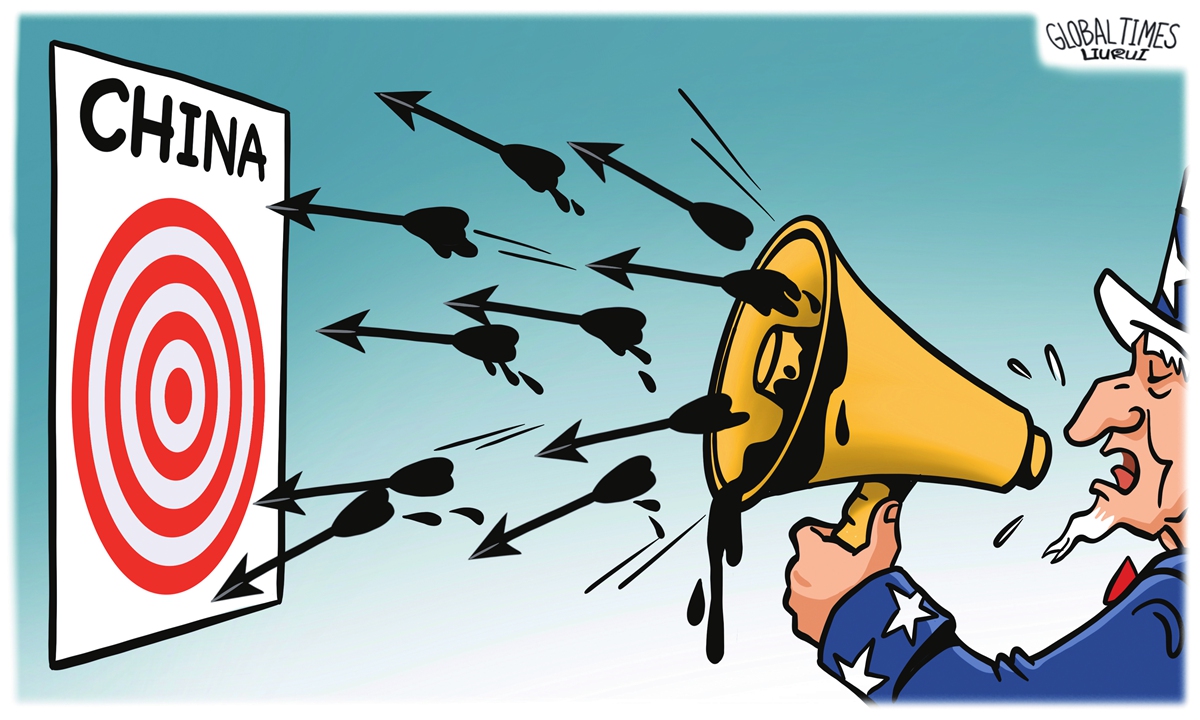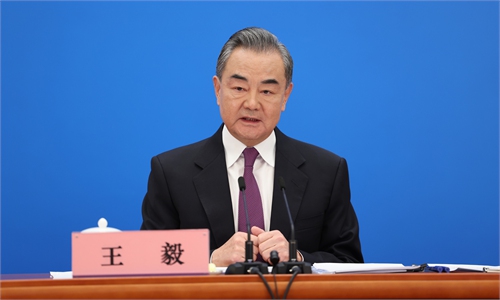
The hopeless fault-finder Illustration: Liu Rui/GT
Russia and Ukraine have had four rounds of talks since conflicts broke out, including one between the foreign ministers. China adheres to the principle of promoting peace and talks, and hopes the international community will create the necessary environment for negotiations. But contradictory smears against China have been fabricated by Western politicians, think tanks and media sources.
The West is trying to pass responsibility to China, accusing it of not stopping Russia before its military operations and not condemning or sanctioning Russia afterward. China appealed for abandoning Cold War mentality before Russia took action. China also called for effective and sustainable security mechanisms in Europe through negotiations, and for respecting and solving Russia's concerns. As a permanent member of the UN Security Council, China has expressed its stances under the framework of the UN Charter. It is nonsense to criticize China for dodging its responsibilities.
What's absurd is that a minority of countries attempt to define what the so-called responsibilities are. They try to include unilateral sanctions on Russia within the Western umbrella of "political correctness." They try to make military support to Ukraine the only standard to judge whether a country is responsible or not.
The top priority for now is to avoid escalating the situation. A good environment should be created for the sides involved to keep negotiating and find a solution that meets different sides' reasonable demands.
The West claims that China knew Russia's plans before the actual military moves. This disinformation is a conspiracy theory that aims to scapegoat China while suggesting that it is cooperating with Russia to destroy the post-WWII world order. This is in line with some countries' strategic design to contain both China and Russia.
The Ukraine crisis took place amid complicated political realities, history and ethnic factors. China-Russia friendly cooperation doesn't aim at any third party and the two countries don't interfere in each other's domestic affairs. It is easy to reach absurd conclusions if one views China-Russia strategic coordination under the Cold War framework, regardless of the two countries' independence and autonomy.
The West wrongfully says China fears the consequences of supporting Russia and will thus review its policy - "there is no limit to the friendship, no forbidden zone to the cooperation and no ceiling to the mutual trust between China and Russia." They say so to drive a wedge between China and Russia to bring the conflict into the countries' political, business, academic and public opinion spheres. However, China-Russia relations have withstood such attempts to sow discord. The Trump administration tried to rope Russia against China, but its failure proved similar attempts are not feasible.
Relevant countries should ask: Why can't they change the obsession of identifying winners and losers of the Cold War? Why can't they coordinate the West's security norm with Russia's? Does NATO have reason to exist anymore? Why isn't there a balanced, effective and sustainable security framework in Europe? Why haven't a super long list of sanctions on Russia prevented the situation from worsening? Does isolating Russia benefit Europe's security?
Some believe China will benefit from the Ukraine crisis because the US will slow down its military deployment toward the Indo-Pacific and the establishment of alliances there for containment. Meanwhile, some think China can take advantage of the global capital's nature to avoid risks for economic gain. This is the mentality of zero-sum game. China's development has never been based on other countries' turmoil or trouble. No country can detach itself from the rest of the world - the countries are interdependent with a shared future. Therefore, all countries should focus on preventing the Ukraine crisis from impacting the world order, multilateral mechanisms and global governance, rather than conducting selfish calculations based on hegemonic logic.
The accusations against China during the Ukraine crisis are not aimed at solving the problem but at causing more trouble. This won't be the mainstream in the international community. This won't undermine China's determination to play a constructive role in promoting peace and consensus.
The author is a research fellow of the Shanghai Institutes for International Studies. opinion@globaltimes.com.cn

